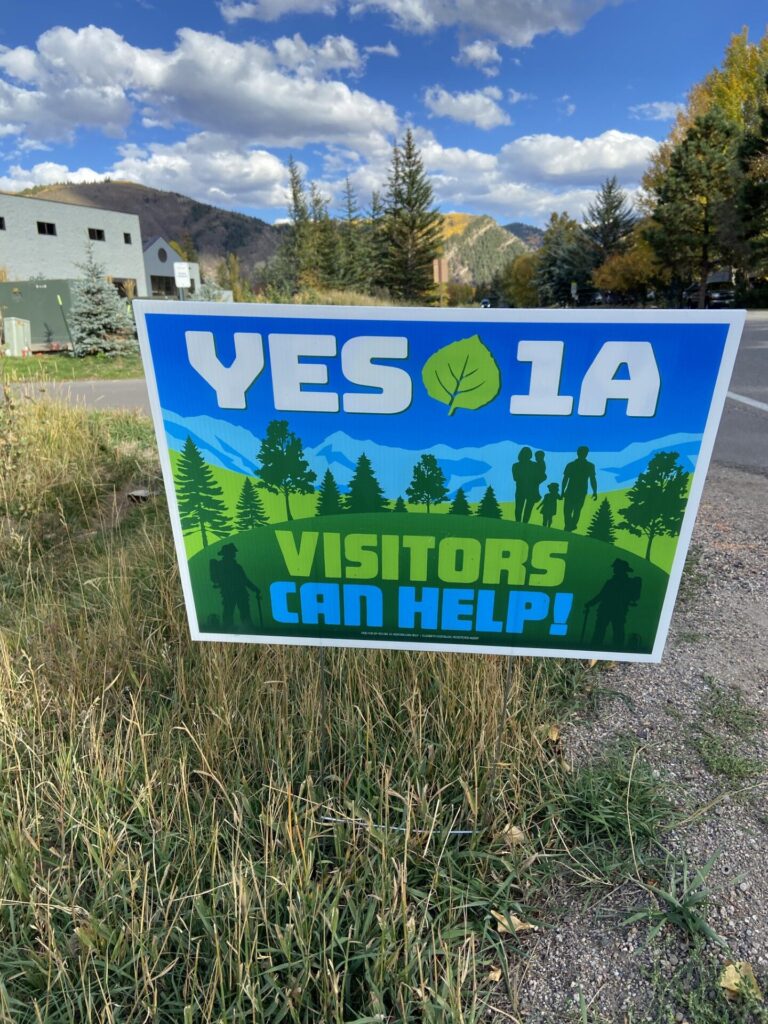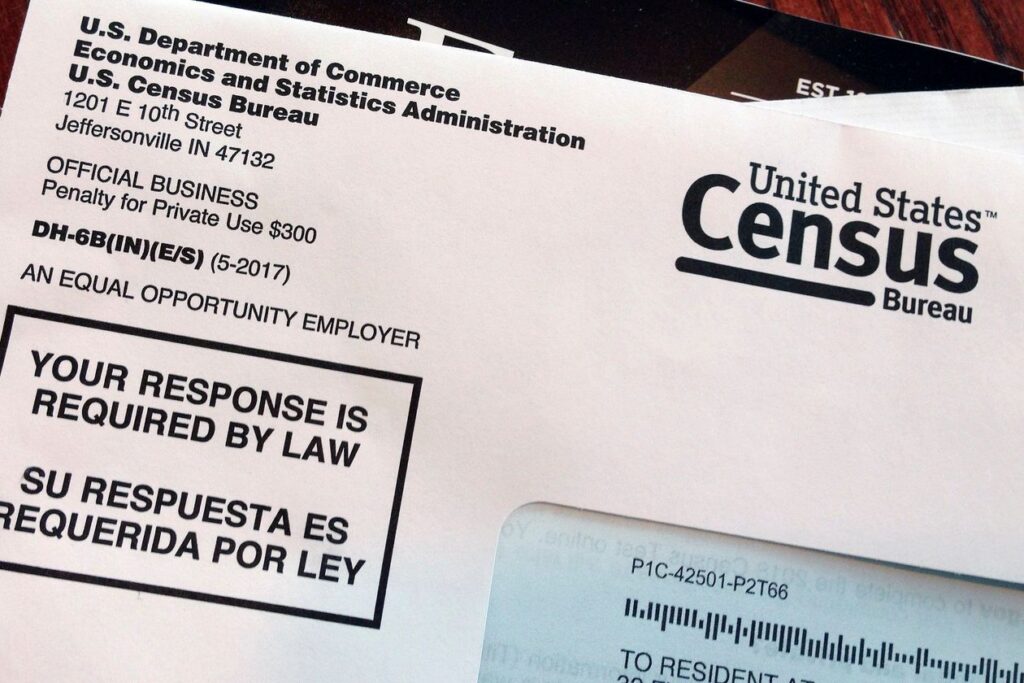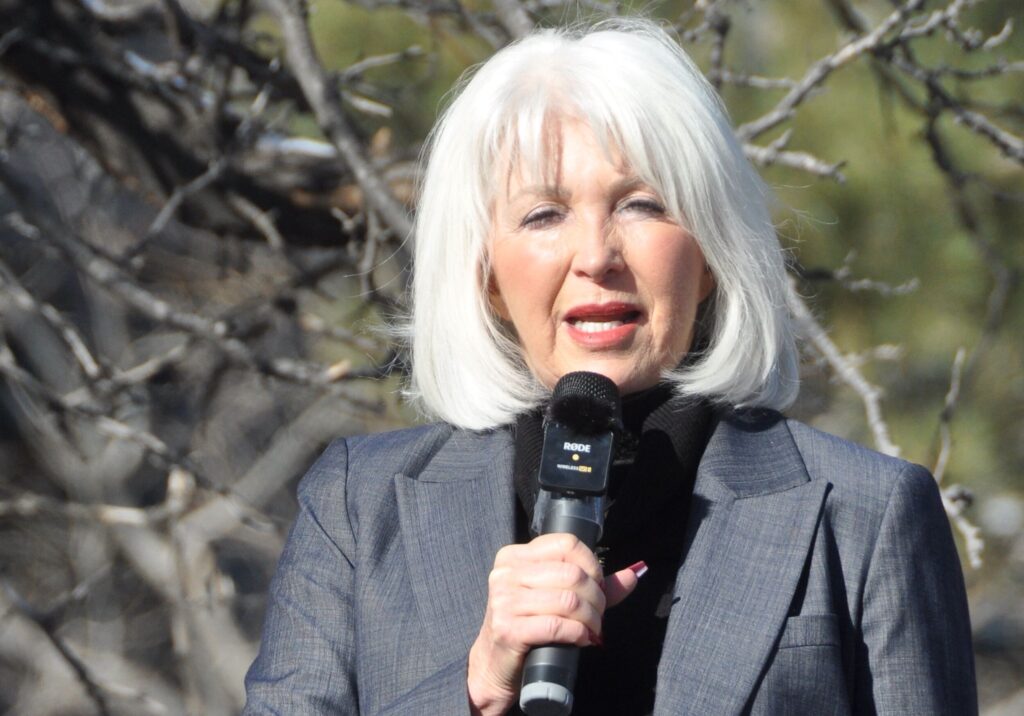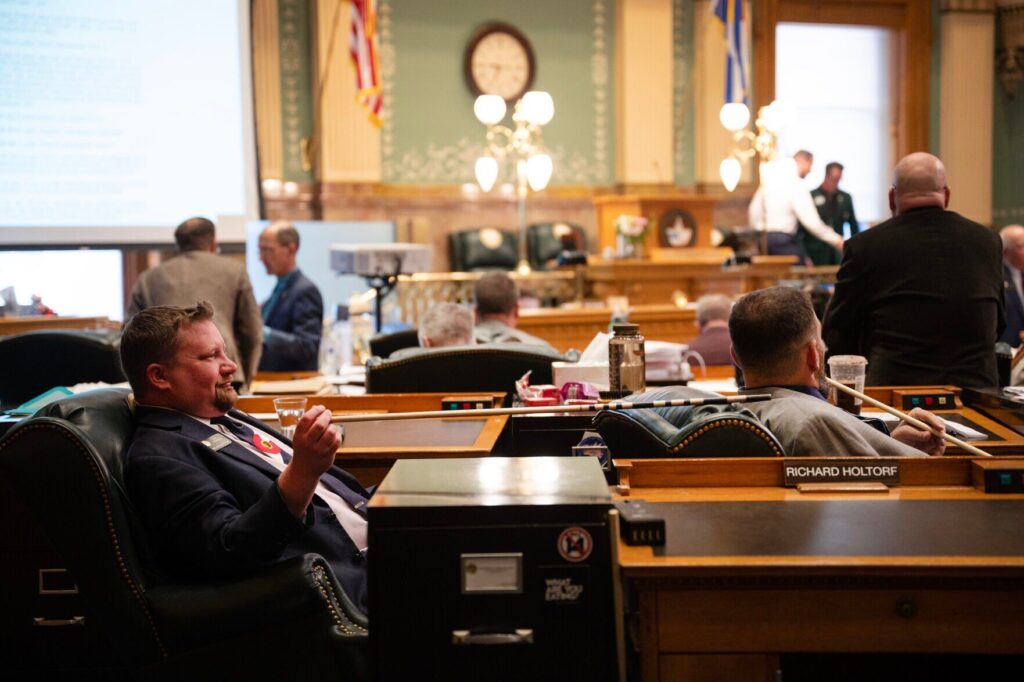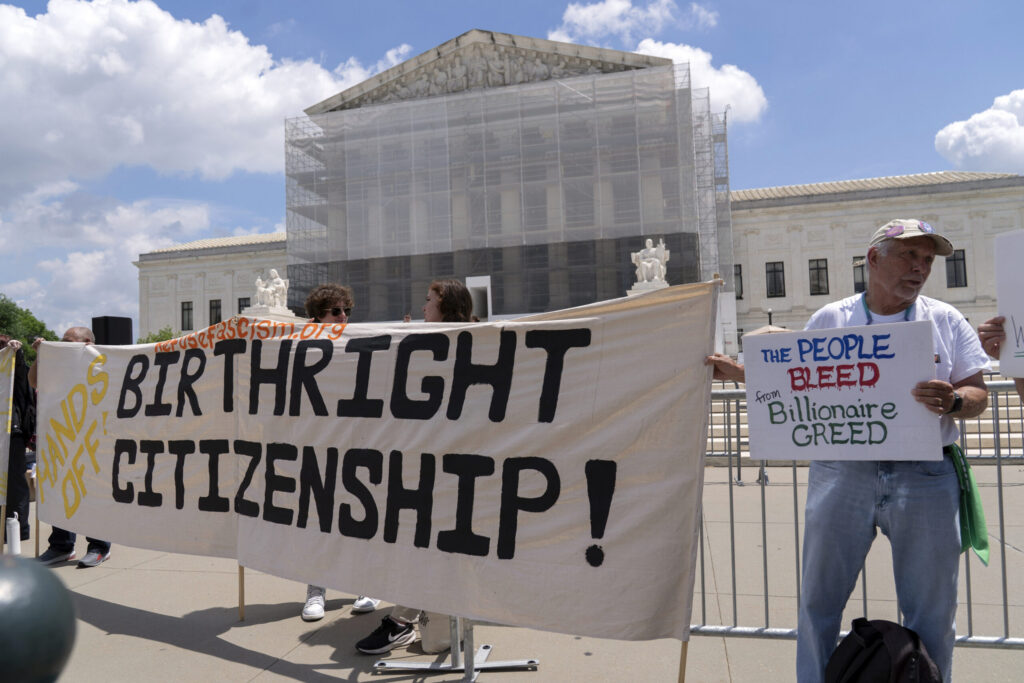Bennet mixes Colorado water and climate change in Steamboat Springs
Sen. Michael Bennet is urging Coloradans to remember their children and grandchildren when it comes to climate change. But he also reached out to those whose livelihoods have been affected by the nation’s migration to renewable energy and away from coal.
Bennet, a Denver Democrat and centrist in the U.S. Senate, spoke about the challenges of climate change this week with attendees at the annual Colorado Water Congress summer conference in Steamboat Springs.
Striking back at climate-change deniers, Bennet said “the vast majority of Coloradans believe climate change is real…and that humankind is responsible.”
Bennet said he hears it from farmers and ranchers all the time, about the effects of climate change, such as shorter growing seasons, more intense droughts, stronger floods and earlier snowmelt.
“If we don’t get a handle on climate change, water challenges will get harder, he said.
In response to audience questions, Bennet said he did not think Republicans and Democrats would support the budget cuts to climate change research proposed by the Trump administration, calling it “cutting off our nose to spite our face.”
One indication of the administration’s views may be found in an upcoming report, due in 2018, known as the National Climate Assessment. The report has been done every four years since 1990, but a draft of the final report, released earlier this month, has caused some scientists to raise concerns that its conclusions will be “blunted” by the Trump administration. Some point particularly to the Environmental Protection Agency, whose head, Scott Pruitt, said he does not believe that carbon dioxide, produced when fossil fuels are burned, contributes to global warming.
The draft, compiled by scientists in 13 federal agencies, said Americans already feel the effects of climate change and warn that even with best efforts to control greenhouse gases, the planet’s overall temperature has continued to climb.
“I know the American people want to know what the science says and that’s what we have to find a way to protect,” Bennet said of the report.
At the same time, “we have to continue to make the case that having diversity in our energy economy is important, and that addressing climate change is important,” he said.
The nation needs to continue moving toward cleaner sources of energy, but “it’s not realistic to believe that the Trump administration is going to lead on that,” he added.
Bennet said he sees his role in the Senate as protecting Colorado’s economy from proposals coming out of the administration that do not support the state’s financial future.
At the same time, he also wants to make sure those impacted by dwindling coal production have a future. Last week, Bennet introduced a bill to provide Incentives for Investment, job creation and training in communities affected by the loss of coal mine jobs.
Bennet’s bill would designate 90 counties, including six in Colorado, as Coal Community Zones. Under that designation, coal communities would be eligible for incentives for investment, hiring and workforce development.
Under the bill, coal communities are defined as those that have lost 50 coal-mining jobs since 2011, out of total employed workforce of no more than 20,00, or those that have more than 5 percent of their workforce in coal mining. The six counties in Colorado that would be eligible for the incentives are all on the Western Slope: Delta, Gunnison, Las Animas, Moffat, Rio Blanco, and Routt counties. There are seven coal mines currently operating in the state, but with declining demand for coal, job losses are becoming a regular occurrence. Last year, West Elk #2 in Delta County, the largest-producing coal mine in the state, cut a quarter of its workforce, blaming cheaper prices for oil and gas.
During his presidential run, then-candidate Donald Trump promised to jumpstart the coal mining industry. In March, his secretary of the interior, Ryan Zinke, began the process by reversing the Obama administration’s moratorium on coal leasing on federal lands.
The incentives proposed in Bennet’s bill include a $3,000 hiring credit for employers who hire people who live or work in a designated Coal Community. The bill sets aside $300 million in “new markets tax credits” for coal communities, tax incentives for building or revitalizing commercial buildings. The bill’s workforce training section includes grants and incentives to help those in coal communities acquire new job skills and to set up training programs.
“We can’t just leave these coal communities stranded,” Bennet told Colorado Politics.
He said he doesn’t pretend the bill is a silver bullet to solve the problems experienced by communities dependent on coal jobs.
“But it will help cushion the blow and help diversify their economies,” he said.


